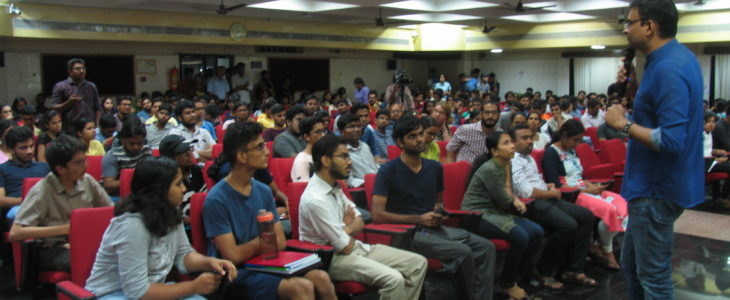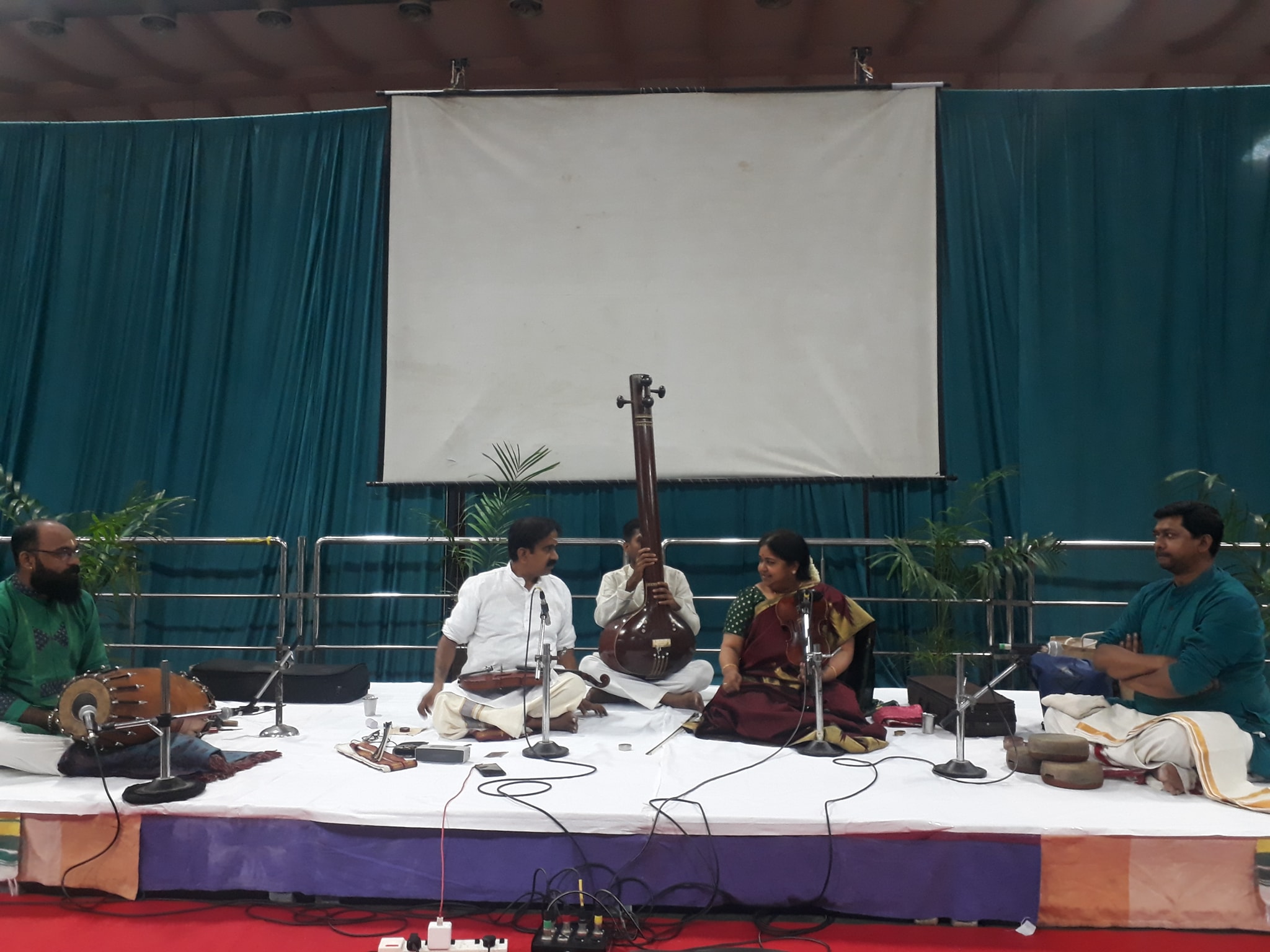Shri. Prasanth Nair is a civil servant and member of the Indian Administrative Service presently serving as the Managing Director of Kerala Shipping & Inland Navigation Corporation. In his stint as the District Magistrate in Kerala’s Kozhikode district, he was wildly popular among the masses for his successful social outreach programs and citizen friendly approach to governance. T5E caught up with the ‘Collector Bro’ Shri. Prashant Nair for a quick interview:
T5E: Lately, there has been a growing section among the IIT Madras student community who are looking to contribute to social change – using technology-based solutions or otherwise. What do you think is the most effective way that engineering graduates can accelerate India’s development, and which pressing and relevant problems do you think are best suited for our skill sets?
Graduation does not mean anything nowadays. It has lost its value. Especially for engineering graduates, the skill sets need to be aligned with market development. One should have the willingness to be open to new ideas.
There shouldn’t be any preconceived notion, like ‘I am going to do this and the result will be that’, or ‘I am going to make a significant contribution in this particular area’ and so on. It may or may not work out because everything is moving very fast, especially technology.
So you can’t plan your future for 5 or 6 years. When you join a course and graduate out of it, new changes might have happened. Maybe the course syllabus itself might have become obsolete. So, a flexible mindset is very important. One should be sensitive towards the social issues
T5E: You have caught the public attention for your social initiatives like “Operation Sulaimani”, “Kozhipedia”, “Yo Appooppa” and “Tere Mere Beach Mein”. The names are undeniably catchy, and the projects were successful too. Do you think that there was a correlation between the two? Because a name can draw and sustain public attention and thereby citizens would follow up with these projects and initiatives?
See, these programs required public participation. These were a success because of public engagement. It was essential for the proper implementation of the program. It also needed to capture the public imagination. So, these can’t be done in a “typical Sarkari way”. The public should be interested and involved when it comes to social initiatives that benefit all. The names are part of social selling. It is mass psychology. I think this is also important for the Government as well. The govt programs always have acronyms which are repetitive and complicated. The common man can never relate with it.

T5E: So, do you think the Govt should change its current way of naming programs?
Yeah, more or less. I am not talking only about Central Govt., both the Center and the State should take a bold step and bring freshness. As I told you before “the usual Sarkari way” of naming things never relate to people, even government officials are confused and sometimes they have no idea about new programs that benefit the public. They have to cater to the public needs. For this, mass selling and things that catch the public imagination are critical. I have an opinion that this new bold step should not only be limited to the naming of programs. Ministers and other public representatives must move on from the symbolic way of doing things. Say the inauguration of a new road or a bridge or even a bus stop. There are these elaborate ways of starting up new infrastructure or a program and the name of that particular minister or MP is written all over which is very funny because it’s not their money but the public’s. I think these kinds of acts are outdated and we should move on. These are just hypocrisies within the system.
T5E: As an IAS officer, you often have to face uncomfortable situations and be prepared for the backlash, brickbats and controversies. This is an opinion that most people hold about the IAS role these days. What do you think? Moreover, how do you navigate these difficult situations, assuming you must have had your share of them as well?
All jobs have their own share of challenges. There is nothing to exaggerate or romanticize about an IAS officer’s work challenges. Do you think a doctor or a teacher has a challenge-free life?
It’s just that the nature of the challenge is very different. I would say a civil service officer is the most privileged and holds THE safest job possible in the country.
It has constitutional and statutory provisions that give an officer freedom and space. Sometimes there might indeed be pressure from politicians who have their own different games to play. When an officer feels like he/she has been dragged into a corrupt situation, he does not have to be a meek victim letting it happen. At some point, he/she should come up with a stand because you have the capacity to make decisions and take actions. When the outside pressure increases one just has to voice it up.
T5E: You enjoy travelling. Can you tell us about your travels? Why do you do it? Is it like a retreat, soul finding journeys, or to study people and places and learn more?
(laughs)
I am very lazy to travel.
T5E: But your Instagram pictures look amazing and give the opposite idea.
It is very difficult for me to start travelling, once I start it’s really hard for me to stop, I might keep going and it will be a long one. Photography is a passion and I always look for good frames – frames with colors. I like capturing people. I like to capture their expressions as they go on with their life. For me, people and life are very intriguing. I don’t take pictures of landscapes or scenery. I would say having a passion helps in having a creative side and it is very good for mental health.
* Shri. Prashant Nair was invited to the campus as a speaker in the Extra Mural Lecture series. T5E thanks the EML team for facilitating this interview. *




